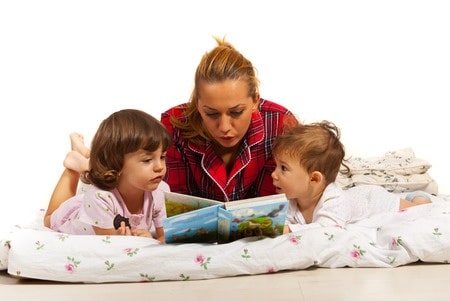 One of the best and most powerful solutions that can help any child to succeed in happily relating to and interacting with other kids and the surrounding world can be found on the nearest bookshelf.
One of the best and most powerful solutions that can help any child to succeed in happily relating to and interacting with other kids and the surrounding world can be found on the nearest bookshelf.
When you read aloud to your young child you are introducing them to the worlds of individuals outside of themselves. Sharing these stories greatly expands horizons and organically and beneficially peels back the perception of the powerfully self-centered universe that we are all born with. In order to enjoy the story, the young child quickly learns that they must pay close attention and make an effort to understand what is going on inside the experience of someone else. Psychologists list empathy and paying dedicated attention as two of the key tenets of communication and emotional bonding. Even without knowing it, by sitting back and enjoying daily reading time, your child is being set up for rich, connected, and rewarding relationships with others around them.
In every story there is a person, an animal, or even a fictional character, that your child can relate to or identify with. These characters take journeys that their young selves have not yet taken, and they learn lessons and suffer consequences that children also have not yet experienced. When a young child listening to a story learns to empathize with what a character has gone through, a complex inner level of emotional awareness forms that is easily extended into real life. Taking care to read stories to your children that feature characters that experience a full range of emotions and circumstances builds important empathetic traits that will carry them well through adulthood.
It has been released in studies time and time again. Young children who are read to, and young children who read on their own develop a powerful cognitive ability that is not easily duplicated by other activities. In fact, children who enjoy reading time are said to have better ‘theory of the mind,’ which relates directly to the understanding and predicting of thoughts and behavior outside of ones self.
Next time you are looking to give your young child a leg up on social communication, inclusion, and life long mental development, don’t forget to implement a daily reading routine with your child!

